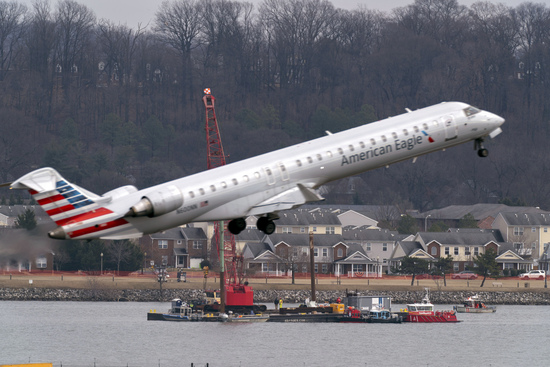The U.S. Army is facing increasing backlash from families of the 67 people killed in January’s catastrophic midair collision over the Potomac River, with relatives accusing military officials of evasion, stonewalling, and refusing to take responsibility.
In a letter sent this week to Army Secretary Dan Driscoll, 168 family members of the victims expressed their profound disappointment with the Army’s conduct during the ongoing investigation. According to The Washington Post, they criticized the military’s pattern of silence and secrecy, especially compared to the responsiveness shown by other agencies.
“The Army’s approach contrasts sharply with the more collaborative stance taken by other organizations involved in this incident and raises serious questions about its commitment to transparency and accountability,” the letter reads.

At the heart of the families’ frustration is the Army’s refusal to engage meaningfully with them, even though other parties involved in the tragedy—such as the National Transportation Safety Board and the Department of Transportation—have been more forthcoming.
The crash happened when an Army Black Hawk helicopter collided with American Eagle Flight 5342 as the commercial jet was making its final approach to Reagan National Airport.
The letter highlights the Army’s particularly egregious decision to withhold an unclassified ADS-B policy memo from Congress, only releasing it under threat of subpoena. The equipment, which detects and helps avoid potential collisions, was reportedly not transmitting from the Army helicopter during the accident, a detail uncovered by the NTSB.
“These actions demonstrate the Army’s willingness to circumvent official processes and resist oversight when deflecting scrutiny. At the same time, the Army has cited process while persistently refusing to accept responsibility or even acknowledge the families throughout these ordeals,” the letter continues.
According to relatives, Army officials held a single initial meeting after the crash but then disappeared. They added that updates, when they came, were often dropped during holidays, which they suspect was meant to minimize press coverage.
Meanwhile, President Donald Trump, who initially pledged support for the victims, only fueled more outrage. In the days following the tragedy, he offered a series of bizarre and baseless theories, blaming everything from diversity, equity, and inclusion programs to President Barack Obama and dwarfism. None of these claims had any connection to the crash, nor were they supported by evidence.
Related | Trump transportation flunky tries to blame plane crashes on Biden
Even as the NTSB continues its investigation, families say that the Army has failed to meet the moment. A defense official confirmed to the Post that senior Army leaders now plan to meet with affected families later this month, alongside the NTSB’s public hearings. But for many relatives, this may come far too late.
Some families, like that of co-pilot Sam Lilley, are especially outraged. Lilley’s father, Tim—himself a former Black Hawk pilot—said that the crash reveals training shortcomings and a culture of complacency within the military unit involved.
The Army’s inspector general has refused to open an independent audit into the incident, despite bipartisan support and congressional pressure, another sore point raised in the letter.
“Given that this is the deadliest incident involving U.S. civilian casualties caused by the military in modern history, the Army has a heightened responsibility to ensure full public transparency and urgent implementation of meaningful safety reforms,” the letter reads. “The scale of this tragedy demands complete cooperation and accountability from all parties involved—including the U.S. Army.”
Their requests are straightforward: Appoint a family liaison, hold a full meeting with families, and support the congressional audits.
It’s a simple ask after an unspeakable loss. But once again, the Trump administration—and its military leadership—appear more interested in covering their tracks than confronting hard truths.
